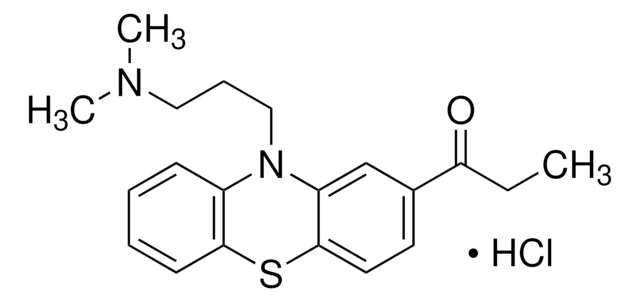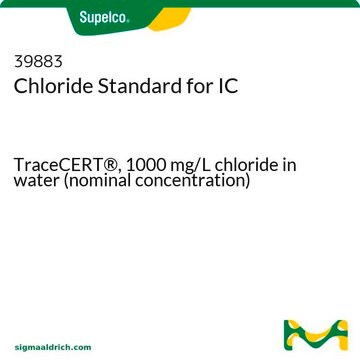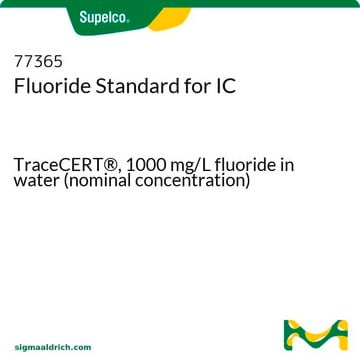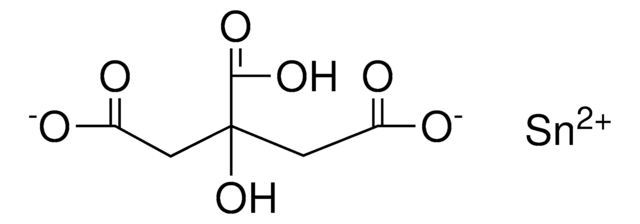S3252
Tin(II) 2-ethylhexanoate
92.5-100.0%
Synonym(s):
2-Ethylhexanoic acid tin(II) salt, Stannous 2-ethylhexanoate, Stannous octoate
About This Item
Recommended Products
Assay
92.5-100.0%
reaction suitability
core: tin
reagent type: catalyst
reaction type: Ring-Opening Polymerization
refractive index
n20/D 1.493 (lit.)
density
1.251 g/mL at 25 °C (lit.)
cation traces
Na: ≤0.5%
SMILES string
CCCCC(CC)C(=O)O[SnH2]OC(=O)C(CC)CCCC
InChI
1S/2C8H16O2.Sn/c2*1-3-5-6-7(4-2)8(9)10;/h2*7H,3-6H2,1-2H3,(H,9,10);/q;;+2/p-2
InChI key
KSBAEPSJVUENNK-UHFFFAOYSA-L
Looking for similar products? Visit Product Comparison Guide
Related Categories
Application
Signal Word
Danger
Hazard Statements
Precautionary Statements
Hazard Classifications
Aquatic Chronic 3 - Eye Dam. 1 - Repr. 1B - Skin Sens. 1
Storage Class Code
6.1C - Combustible acute toxic Cat.3 / toxic compounds or compounds which causing chronic effects
WGK
WGK 2
Flash Point(F)
278.6 °F - closed cup
Flash Point(C)
137 °C - closed cup
Personal Protective Equipment
Regulatory Listings
Regulatory Listings are mainly provided for chemical products. Only limited information can be provided here for non-chemical products. No entry means none of the components are listed. It is the user’s obligation to ensure the safe and legal use of the product.
PRTR
Class I Designated Chemical Substances
FSL
Group 4: Flammable liquids
Type 3 petroleums
Hazardous rank III
Water insoluble liquid
ISHL Indicated Name
Substances Subject to be Indicated Names
ISHL Notified Names
Substances Subject to be Notified Names
JAN Code
S3252-12X100G:
S3252-100G:4548173951270
S3252-1KG:4548173951287
S3252-250G:4548173951294
S3252-BULK:
S3252-VAR:
S3252-500G:
Certificates of Analysis (COA)
Search for Certificates of Analysis (COA) by entering the products Lot/Batch Number. Lot and Batch Numbers can be found on a product’s label following the words ‘Lot’ or ‘Batch’.
Already Own This Product?
Find documentation for the products that you have recently purchased in the Document Library.
Customers Also Viewed
Articles
ATRP is a successful method for precise polymer synthesis with controlled molecular weights and high chain end functionalities.
Our team of scientists has experience in all areas of research including Life Science, Material Science, Chemical Synthesis, Chromatography, Analytical and many others.
Contact Technical Service
















